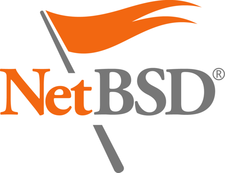CeBIT Open Source Project Lounge -- AllBSD
FreeBSD and NetBSD -- Representing the BSD Operating Systems
ByFreeBSD and NetBSD are among the 15 projects that will present their work at CeBIT, sharing a booth and representing "Berkeley Software Distribution" operating systems. If you paid attention -- you're right, actually it's 16 projects at the Open Source Project Lounge.
In a nutshell: How would you describe your project in one or two sentences?
FreeBSD: The Berkeley Software Distribution most commonly found on PCs, because it provides the broadest hardware support and is, therefore, best optimized for it. FreeBSD includes the most features and has the largest number of users and developers. More so than any other BSD, FreeBSD values ease of use and configurability, especially for new users. It also offers more than 20,000 programs (called ports), the largest collection of applications.
NetBSD: Founded in 1993 with the goal to build on the multiplatform capabilities of what was then Berkeley UNIX (BSD). The result was an outstanding ability to run on a large range of hardware platforms. NetBSD supports over 50 of them, more architectures from one source base than any other OS. Hence our motto: "Of course it runs NetBSD!"
When did the project begin?
For NetBSD the source repository was established March 21, 1993 and the first release was April 1, 1993.
For FreeBSD the CVS repository was established April 1993 and the 1.0 release was December 2, 1993.
How many active members does the project have?
NetBSD has around 250 committers (members with CVS write privileges) and around 3,000 contributors responsible for applications, etc. FreeBSD has around 360 committers and around 4,200 contributors.
How did the project come into being?
Both NetBSD and FreeBSD came about at the same time based on 4.3BSD from the Computer Systems Research Group at the University of California, Berkeley. After the university continued its development, a free project called 386BSD emerged. Things there went at a slow pace, whereupon the NetBSD and FreeBSD teams were organized to speed them along a bit. Both NetBSD and FreeBSD were based originally on 4.3BSD and 386BSD 1.0.
Why should a CeBIT visitor come to your booth?
We distribute free CDs and DVDs with the most current (Live) versions of FreeBSD and NetBSD along with the information about them. We're seeking contacts with companies, developers and users. We recommend usage capabilities and help with problems. And we showcase a variety of usage scenarios.
Who do you make your software for?
Anyone who wants to use it. It's a gift to the community. Anyone (companies, individuals, organizations) can use it, change it, resell it, however they want.
Where do you see your biggest current challenge?
Companies that don't provide documentation for driver development. Also, proprietary programs such as Flash that everyone wants, but where the projects are hesitant to develop versions for *BSD.
If you could hire a full-time project developer now, what problem should he or she be ready to solve?
For NetBSD, further development of SMP code (multiprocessor support). For FreeBSD, either developing/improving a Flash alternative or providing direct support.
Under which license is the software currently offered?
Both projects are under the BSD license, preferably the 2-clause BSD license that reads:
1. Redistributions of source code must retain the above copyright notice, this list of conditions and the following disclaimer.
2. Redistributions in binary form must reproduce the above copyright notice, this list of conditions and the following disclaimer in the documentation and/or other materials provided with the distribution.
Project Website: FreeBSD: http://www.freebsd.org, NetBSD: http://www.netbsd.org
Subscribe to our Linux Newsletters
Find Linux and Open Source Jobs
Subscribe to our ADMIN Newsletters
Support Our Work
Linux Magazine content is made possible with support from readers like you. Please consider contributing when you’ve found an article to be beneficial.

News
-
Introducing matrixOS, an Immutable Gentoo-Based Linux Distro
It was only a matter of time before a developer decided one of the most challenging Linux distributions needed to be immutable.
-
Chaos Comes to KDE in KaOS
KaOS devs are making a major change to the distribution, and it all comes down to one system.
-
New Linux Botnet Discovered
The SSHStalker botnet uses IRC C2 to control systems via legacy Linux kernel exploits.
-
The Next Linux Kernel Turns 7.0
Linus Torvalds has announced that after Linux kernel 6.19, we'll finally reach the 7.0 iteration stage.
-
Linux From Scratch Drops SysVinit Support
LFS will no longer support SysVinit.
-
LibreOffice 26.2 Now Available
With new features, improvements, and bug fixes, LibreOffice 26.2 delivers a modern, polished office suite without compromise.
-
Linux Kernel Project Releases Project Continuity Document
What happens to Linux when there's no Linus? It's a question many of us have asked over the years, and it seems it's also on the minds of the Linux kernel project.
-
Mecha Systems Introduces Linux Handheld
Mecha Systems has revealed its Mecha Comet, a new handheld computer powered by – you guessed it – Linux.
-
MX Linux 25.1 Features Dual Init System ISO
The latest release of MX Linux caters to lovers of two different init systems and even offers instructions on how to transition.
-
Photoshop on Linux?
A developer has patched Wine so that it'll run specific versions of Photoshop that depend on Adobe Creative Cloud.


